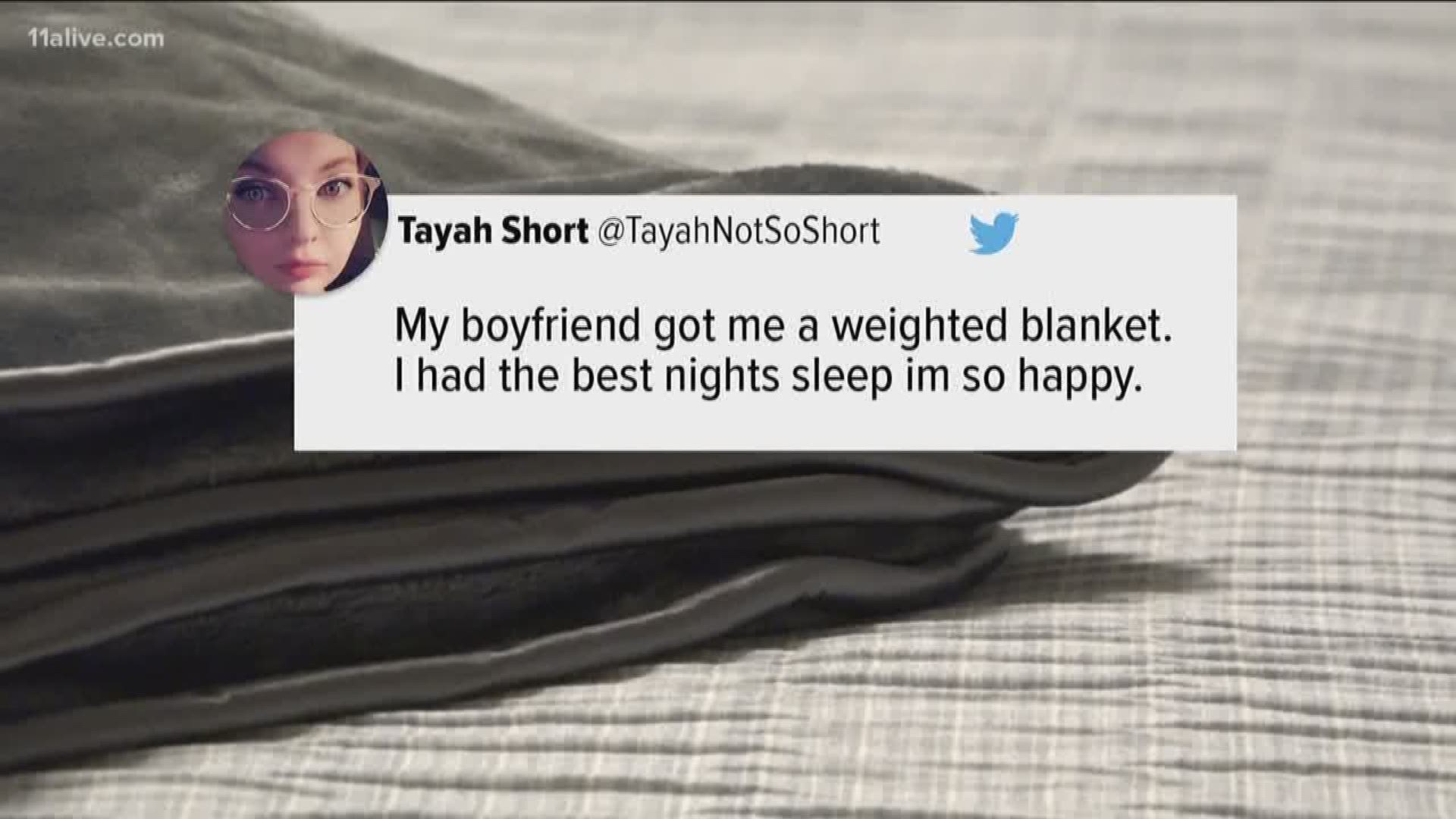The promise of better sleep is spreading on social media. Weighted blankets were a hot holiday gift for 2018, the item yielding more than 25,000 posts on Instagram.
But is the blankets’ sell out status just another trend or can they really offer a better night's rest?
Verify: Do weighted blankets promote better sleep?
Source: Dr. Scott Liebowitz, Medical Director of Northside Hospital System’s Sleep Medicine program
“It needs to be about ten percent of your body weight to be considered a weighted blanket,” Dr. Liebowitz explained. “The weight essentially acts as a soothing mechanism. almost as if it cocoons the individual...sort of wraps them. They feel a sense of calm and relaxation.”
Weighted blankets aren't new, but do they live up to the new hype and help sleep? Dr. Liebowitz clarified.
“It's been used historically in kids and individuals with developmental disorders,” Dr. Liebowitz said, adding the blankets have been successfully tested among children with autism spectrum disorder or ADHD.
“There have been studies that show that it helps these kids sleep,” Dr. Liebowitz said. “There was one study done a couple of years ago that looked at effectiveness with patients with insomnia and actually did show it did show some benefit to some people's sleep.
So it can be verified there is scientific evidence backing the viral claims, but according to Dr. Liebowitz, there’s a catch.
“As far as the question of verifying whether this is an effective device, I would say it is…for some,” he said.
Dr. Liebowitz said the challenge with sleep difficulties is that remedies aren't one size fits all. So while scientific evidence has shown weighted blankets can be beneficial for sleep, the blankets are not a guarantee.
“Even patients with clinical insomnia…there's still a great deal of trial and error as far as what works,” Dr. Liebowitz said.

